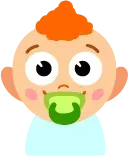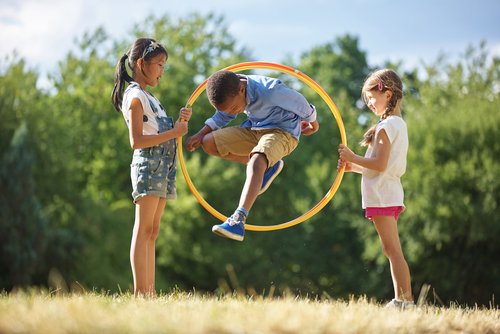Language Activities to Improve Speech for Babies and Toddlers
As language skills are acquired, and vocabulary is increased on a weekly or even daily basis, it will be determined primarily by the adults in the child's life. This means that adults regularly play an active role in children's lives and must be held accountable for the development of their children's language skills. Children will naturally seek out adults who are surrounding them and teaching them what the new word means.
Sing, Read, Narrate Everything
Perhaps one of the more fun and enjoyable ways to support children's language skills is to incorporate music into everyday activities and routines. Singing and listening to songs can give children the opportunity to practice hearing and use new sounds and words.
Reading to children not only contributes to their learning at school but also enables them to develop a special love affair together. They also learn that books are fun, and have a positive impact on their ability to become good readers.
https://www.instagram.com/p/B9WUvgwlNiA
A large body of research shows that reading to children can help develop strong language skills in the distant future. Studies have shown that the number of words a child hears is associated with an increase in vocabulary by age 4. Research also shows the best way for children to learn a language is by talking about what we do in everyday life.
If you want your children to be great writers, they must be great readers. Help them become better writers by creating a strong connection between their writing skills and their love of reading. Most children learn language by absorbing words and what they mean through loving family interactions. Infants and toddlers can enroll in official language classes to teach them how to speak.
Play, Ask Open Questions, Categorize Objects
As a parent, you may be wondering what you can do to ensure a literacy-rich environment for your children. Adding these techniques to your parent-teacher toolkit can go a long way toward developing your child's early literacy. Pretend play is another great way for young students to learn new vocabulary if it is presented in a rich language environment.
In a colloquial manner, without dominating the discussion, teachers help children develop their language skills by asking thought-provoking questions and introducing new vocabulary through science, art, snacking, and other activities. Children have the opportunity to talk aloud about their favorite books and play stories. Their sentences become longer and more complex. In a language-rich environment, language skill in preschoolers develops.
Labeling objects to draw attention to them helps children learn them and remember them, even if they have not seen them before. This is incredibly important, and using language just for current abilities can help children understand and use more complex things earlier. The number of words a child knows depends on what they are learning to read when they start school. By creating a language-rich environment, you don't just help them learn words, but can initiate brain changes that continue to give them an advantage year later.
Use Speech Blubs for At-home Speech Practice
The more you practice, the more you learn! Try Speech Blubs app for fun and engaging therapy sessions with your little one.
Below you will find even more age appropriate language strategies to create language-rich environment at home:

12 Language Activities for 0 to 2 Years Old Babies

10 Language Activities for 2 to 4 Years Old Toddlers

 By Robert McKenzie
By Robert McKenzie